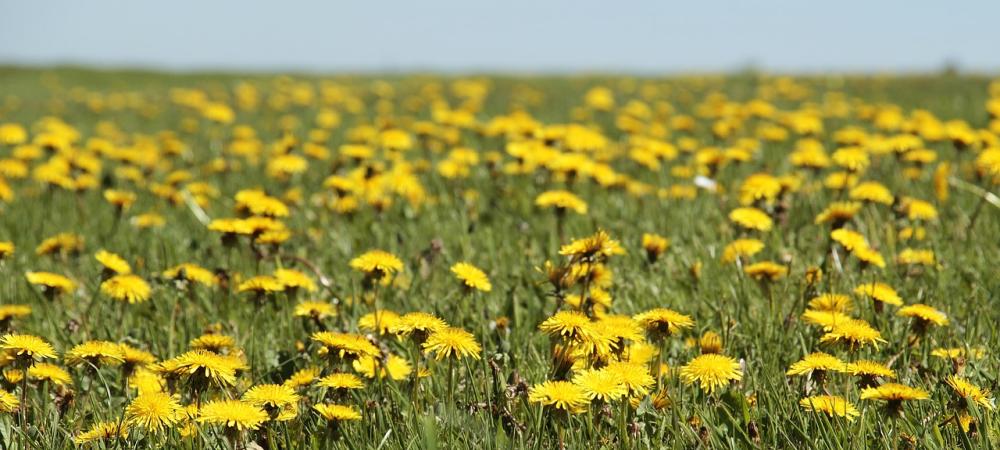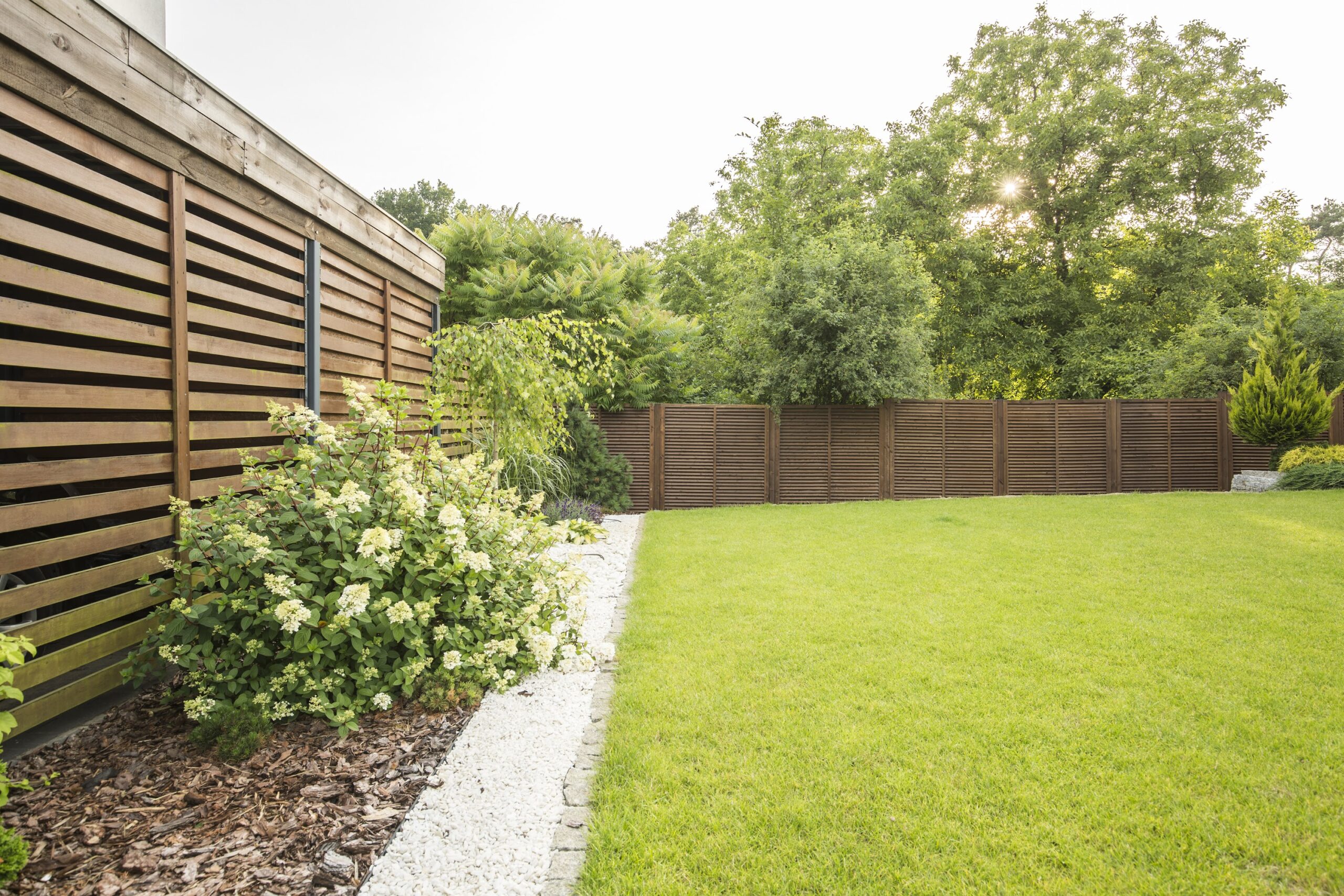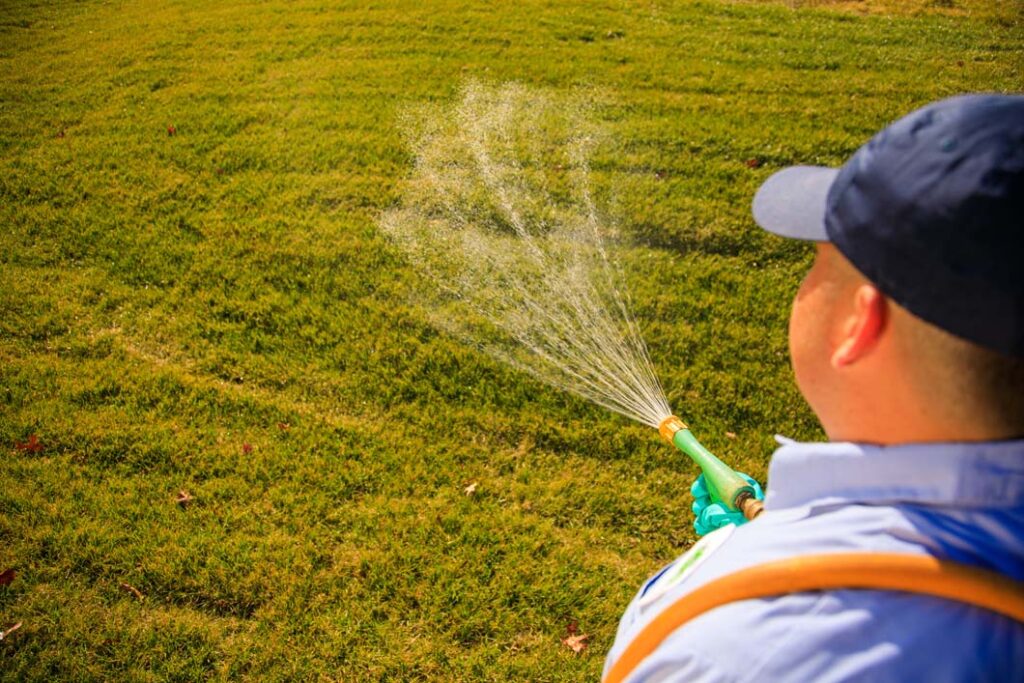
There are several common weeds that you might find in your North Carolina yard. Nobody wants to deal with them, but yet we all do anyway! North Carolina proudly boasts a variety of plant life, but unfortunately, this doesn’t stop at weeds. If you’re experiencing lawn weeds in North Carolina, read on to learn more.
Crabgrass
Crabgrass is one of the most popular weeds in North Carolina! It’s most common in the summer, and tends to grow faster than regular lawn grasses. This makes it an especially annoying weed to deal with! Crabgrass has coarse leaves and is light green in color, and it often just looks like a regular clump of grass. Since crabgrass is persistent and spreads seeds quickly, the best way to stop growth is by preventing the seeds from spreading. Kill as much existing crabgrass as you can with herbicide, but make sure to rake the lawn before you mow and use a grass catcher. Raking will disturb the crabgrass, and then mowing with the catcher attached will catch the seeds.
Dandelions
Dandelions are often referred to as the “yellow flower weeds,” because that’s essentially what they are! These perennial weeds often have green stems and a yellow flower on top. You can get rid of dandelions by pulling them out of the ground and applying herbicide to any remaining roots. Despite technically being weeds, there are actually many benefits to having dandelions in your yard:
- Aeration. The widespread roots loosen your compacted soil.
- Fertilization. Their root pulls up calcium from the soil and spreads it to other plants.
- Health Benefits. Consuming the leaves is a great source of vitamins and calcium!
While hiring a professional lawn care company is a much more reliable option for aeration and fertilization, dandelions are sure to help out your lawn! Dandelions are also popular for how they look in their scattering phase. The yellow flowers become puffy white balls that scatter in the air with the wind.
Chickweed
Chickweed is a popular winter weed here in all three regions of North Carolina. This is a fast-spreading weed, as each individual plant can yield up to 1,300 seeds! Chickweed is a broadleaf weed that grows upward with small leaves down the stem and a white flower on top. It grows in large patches when the weather starts to cool, which is the best time to get rid of it! Chickweed has a shallow root system, so it is relatively simple to eliminate. Once you pull it out of the ground, it will not grow back. The best way to prevent future chickweed growth and other weeds is to keep your lawn thick and healthy.
Scarlet Pimpernel
Scarlet Pimpernels are similar in appearance to chickweed but are poisonous. The main difference between these toxic plants and chickweed is that they produce an orange flower, not a white one. While chickweed is not poisonous, do not consume scarlet pimpernels.
Doveweed
Doveweed is one of the summer weeds in North Carolina and is very difficult to distinguish from grass! The key difference is that doveweed has purple flowers that appear on the short stems. Another identifying feature of doveweed is the narrow leaves that grow in an alternating pattern. It’s a persistent weed that thrives in moist conditions, which can be a problem for North Carolina homeowners in the summer. Store-bought herbicides can get rid of it, but the best solution is to hire professional weed control.
Purple Deadnettle
Purple deadnettles are a member of the mint family and are most recognized by their purple flower. This is an invasive annual weed in NC, and it originated all the way in Eurasia! Unlike many other weeds, purple deadnettles can be found along roads and pavement. Since they’re a member of the mint family, they have fuzzy leaves underneath their purple flowers. The best time to get rid of purple deadnettle with herbicide is before they spread their seeds in spring.
Clover
Clover is one of the more popular weeds here in North Carolina, and it’s found mostly in the Appalachian region. Due to the popularity of the rare four-leaf clovers, these are one of the easier weeds to identify. Each plant has three round-shaped leaves, and the flowers are white or a very pale pink. While you can eliminate clover with store-bought herbicides, there are also benefits to keeping it in your lawn, such as:
- Fertilization. Clover converts nitrogen from the air and spreads it to nutrient-deficient soil, helping fertilize your grass.
- Diversity. Clover attracts bees and other insects that prey on lawn-damaging bugs.
- Natural weed killer. Clover doesn’t allow other weeds to grow, keeping more harmful weeds out of your lawn!
Wild Onions
Wild onions might sound harmless, but they are actually an extremely invasive weed in North Carolina. These onions are similar in appearance to the green onions and chives you’d find in the grocery store. The biggest difference is that you should be careful before eating them! Wild onions are edible, but there are several poisonous look-alikes you should avoid. All parts of an edible wild onion will have a strong onion smell. Getting rid of wild onions in your yard involves removing the stems and bulbs and then applying post-emergent herbicide.
Ragweed
Ragweed is a common weed in North Carolina, mostly known for the allergies it causes in the fall. Many people fall victim to the sneezing and congestion that ragweed causes. Identifying this weed is relatively easy, as the tall, hairy leaves usually give it away. It can be as short as a few inches or as tall as 6 feet. Pulling out ragweed yourself is a common way to get it out of your yard or garden, but storebought weed control can work as well if you’re looking for a DIY method.
Get Professional Weed Control!
Storebought weed control methods and herbicides can be effective, but they aren’t usually lasting solutions! To maintain a healthy lawn and keep these common North Carolina weeds out of your yard for good, you need professional weed control. The Green Team is a local lawn care company in North Carolina, South Carolina, and Virginia. Learn more about our services today!




